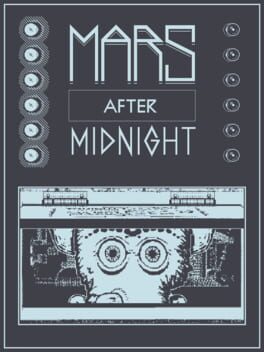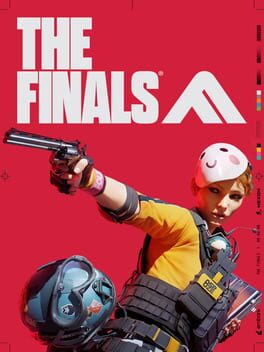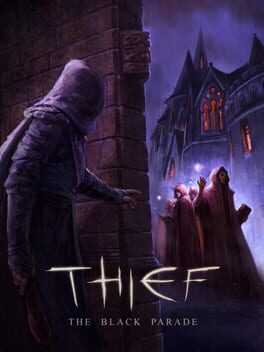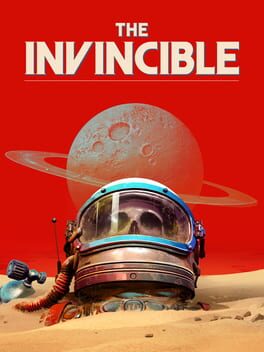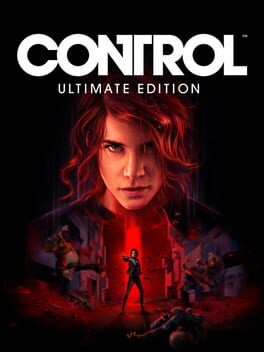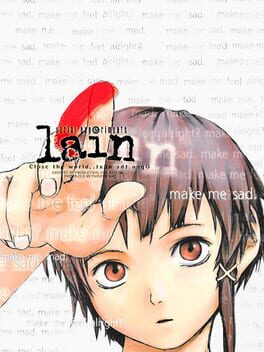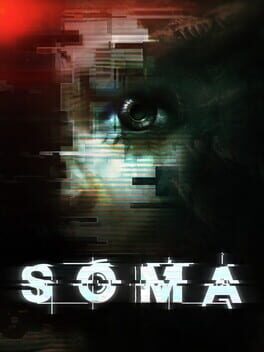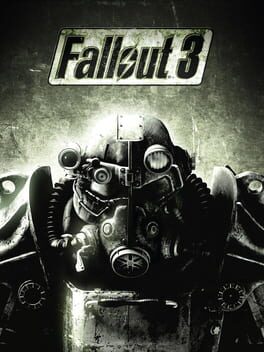108 Reviews liked by minusforever
Mars After Midnight
2024
a sublime experience from the great lucas pope. distills the gameplay essence of papers please into a simple, comedic form and it works wonderfully. specifically, the idea of hosting a community event and making sure that the right people attend to get the help they need. once i got into the rhythm of it i found myself giddy to open up the door's hatch and take a look at who was trying to get in. there's a ton of fun events and gimmicks involved and i enjoyed the planning, but i do think there's a tad bit too many events in the mars colony section. the subtle character touches for our 3 eyed martian and his robot companion leaves me wanting more from them. i adored when the robot began dreaming about his teddy bear.
at the end, there's a slight but eloquent touch, to remind people to do this sort of "care" in real life, and i appreciated it.
not going to be a playdate seller by any means, but if you have a playdate, this is an easy recommendation.
at the end, there's a slight but eloquent touch, to remind people to do this sort of "care" in real life, and i appreciated it.
not going to be a playdate seller by any means, but if you have a playdate, this is an easy recommendation.
The Finals
2023
Some cool tech & snappy gameplay trapped in Free-to-play hell. We talk a lot about games being tied to & shaped by their technology but little about how they’re shaped, and hollowed out, by their revenue model: GaaS “living games” are released (and shut down) before there is any life in them.
The Finals contains the movement & sugary energy of nu-battlefield (post-Battlefield 1) wrapped in the most horrid vibes: Forza Horizon-esque npcs at their infinite party, Siege/Valorant/Hyperscape-adjacent esports mush. Embark has managed to make Unreal resemble Frostbite, including impressive physics & destruction that echoes the chaos of bad company 2, but it’s all wasted here.
Even for a tight competitive shooter, this needs a more fleshed out setting, either leaning further into the surreal elements (bodies exploding into coins) or situating it in a world that is more than a watered down squid-game/mirror's edge/DICE's entire catalog. Feels like a very polished tech-demo and I refuse to play 100 hours to unlock interesting mechanics or outfits, which has led to every character running around in the default tracksuit/pyjamas. And don't get me started on the AI voices.
I am cautiously optimistic about embark’s other beautiful but empty sci-fi project, ARC raiders, which has seemingly transformed into yet another extraction shooter.
The Finals contains the movement & sugary energy of nu-battlefield (post-Battlefield 1) wrapped in the most horrid vibes: Forza Horizon-esque npcs at their infinite party, Siege/Valorant/Hyperscape-adjacent esports mush. Embark has managed to make Unreal resemble Frostbite, including impressive physics & destruction that echoes the chaos of bad company 2, but it’s all wasted here.
Even for a tight competitive shooter, this needs a more fleshed out setting, either leaning further into the surreal elements (bodies exploding into coins) or situating it in a world that is more than a watered down squid-game/mirror's edge/DICE's entire catalog. Feels like a very polished tech-demo and I refuse to play 100 hours to unlock interesting mechanics or outfits, which has led to every character running around in the default tracksuit/pyjamas. And don't get me started on the AI voices.
I am cautiously optimistic about embark’s other beautiful but empty sci-fi project, ARC raiders, which has seemingly transformed into yet another extraction shooter.
Starfield
2023
Struggled to put together my thoughts on this. Escalates from mediocre to engaging somewhere about ten hours in, followed immediately by an overwhelming sense of emptiness. All of Bethesda's quirks are here in the worst ways: dead mannequin npcs, clumsy systems that don’t quite cohere, a terrible main quest that drifts across the flimsy surface of alien artifact sci-fi stories.
But something worse about this one is the lack of texture. There are very few freaks, minor discoveries off the beaten path, companions that make you feel something (Nick <3). Everyone is so nice, the politics completely empty. Cities are so strange and dead, with sound design attempting to evoke the density of Night City but lacking any real scale - the abstraction of a fantasy setting no longer here to distract you from asking: why is this just one square block?
This must’ve been a monumental effort to produce, but why dedicate seven years to creating a pale echo of The Expanse, Mass Effect & Firefly? There are hints of another game in here - one with meaningful travel and fewer, more fleshed out worlds - that was abandoned prior to shifting to this smooth, soulless, bloated final form.
But something worse about this one is the lack of texture. There are very few freaks, minor discoveries off the beaten path, companions that make you feel something (Nick <3). Everyone is so nice, the politics completely empty. Cities are so strange and dead, with sound design attempting to evoke the density of Night City but lacking any real scale - the abstraction of a fantasy setting no longer here to distract you from asking: why is this just one square block?
This must’ve been a monumental effort to produce, but why dedicate seven years to creating a pale echo of The Expanse, Mass Effect & Firefly? There are hints of another game in here - one with meaningful travel and fewer, more fleshed out worlds - that was abandoned prior to shifting to this smooth, soulless, bloated final form.
Thief is methodically mapping space from the shadows. Thief is exploring an architecture of absurd, arcane labyrinths. Thief is rotoscoped & roughly layered 90s FMVs scored with industrial beats.
The Black Parade, a fan campaign mod for the now 25 year old Thief: The Dark Project, brings Thief into the present as an act of alternate-history building. Within the tight restrictions of the Dark Engine, this imagines what Thief could be given decades of further contemplation, or in this case, seven years of development led by famed modder Skacky.
The Black Parade echoes iconic levels: here is a mansion, or a sprawling, vertical city, a rain-swept church, a plague stricken derelict district. But everything is now denser, more honeycombed, more varied. At times you’ll be lost, but they’ve paid special attention to every room’s volume, materials, light and colour, so that your mental map is as rich as your potential targets.
Thief separates itself from other Im-Sims by refusing to be an everything-game (Deus-Ex). You are a thief. You can’t fight for shit. You can jump from carpet to carpet and knock someone out if you’re good, but you can’t do much about two guards on your tail. Thief is narrowly designed to do one thing. The Black Parade knows this and is as close to Thief 3 (5?) that we’ll ever get.
The Black Parade, a fan campaign mod for the now 25 year old Thief: The Dark Project, brings Thief into the present as an act of alternate-history building. Within the tight restrictions of the Dark Engine, this imagines what Thief could be given decades of further contemplation, or in this case, seven years of development led by famed modder Skacky.
The Black Parade echoes iconic levels: here is a mansion, or a sprawling, vertical city, a rain-swept church, a plague stricken derelict district. But everything is now denser, more honeycombed, more varied. At times you’ll be lost, but they’ve paid special attention to every room’s volume, materials, light and colour, so that your mental map is as rich as your potential targets.
Thief separates itself from other Im-Sims by refusing to be an everything-game (Deus-Ex). You are a thief. You can’t fight for shit. You can jump from carpet to carpet and knock someone out if you’re good, but you can’t do much about two guards on your tail. Thief is narrowly designed to do one thing. The Black Parade knows this and is as close to Thief 3 (5?) that we’ll ever get.
Californication
2022
i was like 5 years old when i first heard Californication. it made me bug my parents for years to get guitar lessons just to learn how to play it. i kinda did! i recorded a scuffed version of the Can't Stop video with my brother (and a camcorder). the Californication video, at least nowadays, represents to me an idealization of video game aesthetics in a musical dreamscape. music videos of this era tend to be very surreal; the fake game the band was in was just an expression of that trend, but it still easily captured my mind.
the video does not represent a videogame that makes sense. at all. it breaks free from any mechanics and the sense of player input because it's CGI, and it was made with that in mind - not with the intent to create a simulacrum of a videogame. it made me, as a child, go insane about how this music video would work as a real game. even when i was a little kid, it didn't make any sense at all! but it was one of the main things that made me think about how i see games.
yunno, i thought about how those very contextually sensitive animations playing while Flea dodges and jumps around LA people wouldn't make sense in a game played with a controller. "not even GTA can do this!", i thought. that's what made it so dreamlike - the MV emulates videogame aesthetic and UI with graphics that didn't make sense in any console at the time and completely incoherent "gameplay". it's how it feels to dream that you're inside a game.
transforming this into even a slightly playable game, as neat as it is, can't evoke the same feelings that the MV does. the detailed minimap, slightly freeform sections, and the lack of the LA cityscape and iconography make this game too "real". it can't exist. it's based on something that is remarkable specifically because it doesn't exist.
but like, this is still good though. cool effort! just made me think a bit.
the video does not represent a videogame that makes sense. at all. it breaks free from any mechanics and the sense of player input because it's CGI, and it was made with that in mind - not with the intent to create a simulacrum of a videogame. it made me, as a child, go insane about how this music video would work as a real game. even when i was a little kid, it didn't make any sense at all! but it was one of the main things that made me think about how i see games.
yunno, i thought about how those very contextually sensitive animations playing while Flea dodges and jumps around LA people wouldn't make sense in a game played with a controller. "not even GTA can do this!", i thought. that's what made it so dreamlike - the MV emulates videogame aesthetic and UI with graphics that didn't make sense in any console at the time and completely incoherent "gameplay". it's how it feels to dream that you're inside a game.
transforming this into even a slightly playable game, as neat as it is, can't evoke the same feelings that the MV does. the detailed minimap, slightly freeform sections, and the lack of the LA cityscape and iconography make this game too "real". it can't exist. it's based on something that is remarkable specifically because it doesn't exist.
but like, this is still good though. cool effort! just made me think a bit.
The Invincible
2023
The core element of Lem’s 1964 novel they’ve captured is the planet of Regis III, with its pastel pink dunes and liquid rock formations, an intoxicating, vivid landscape. The plot is tangential to the novel, and part of the mystery is how it fits in with Lem’s tale of advanced military tech facing up against an inexplicable alien force.
But unfortunately (about 7 years out from Firewatch and 6 from SOMA), they really aren’t doing enough here to distinguish this from numerous hollow walking sims, despite the painterly landscapes and luxurious retro-futuristic tech. There’s little negative space to soak in the planet's surface, only constant muttering to yourself or your weirdly annoyed boss off-planet. Overlapping dialogue and abrupt popups disrupt gameplay constantly, and no amount of contextual animations can feel like meaningful interactions.
Puzzles are almost an afterthought and at most you will contend with occasional navigation challenges through samey looking caves. Outer Wilds and Subnautica have demonstrated how alien archeology and space exploration can be distilled into tense & dynamic gameplay, and in comparison this feels a little archaic. I look forward to more attempts at Lem’s work (possibly a psychological horror take on Solaris!?) and recommend experiencing this for the artwork alone (& a climax featuring the largest rocket of all time 0::).
But unfortunately (about 7 years out from Firewatch and 6 from SOMA), they really aren’t doing enough here to distinguish this from numerous hollow walking sims, despite the painterly landscapes and luxurious retro-futuristic tech. There’s little negative space to soak in the planet's surface, only constant muttering to yourself or your weirdly annoyed boss off-planet. Overlapping dialogue and abrupt popups disrupt gameplay constantly, and no amount of contextual animations can feel like meaningful interactions.
Puzzles are almost an afterthought and at most you will contend with occasional navigation challenges through samey looking caves. Outer Wilds and Subnautica have demonstrated how alien archeology and space exploration can be distilled into tense & dynamic gameplay, and in comparison this feels a little archaic. I look forward to more attempts at Lem’s work (possibly a psychological horror take on Solaris!?) and recommend experiencing this for the artwork alone (& a climax featuring the largest rocket of all time 0::).
Frequently enthralling in theory, occasionally stumbling in practice, yet incredibly beguiling in retrospect. Like Alan Wake, this is a game that toys with spooky contradictions and the grueling concept of ‘process’. Yet unlike that game (besides this being actually good), this is less a twisting narrative about the complicated and often defeating journey of creating art and deconstructing success than one about the sheer mundane becoming extraordinary and introducing order from such a chaotic dynamic. Elements and objects of everyday existence are touched with the supernatural and the obvious American response to this is to transform these newfound and wondrous discoveries into bureaucratic nonsense; where even the forces of capitalist labor inevitably puncture. Remedy stretches these ideas to its absolute limit, nothing feeling shortchanged through the extensive notes and tapes littered around the map. While I think the game is afraid to allow the player to deduce these simplistic connections (Jesse being a talkative cipher yet largely devoid of personality) it’s pretty wild that a AAA title was allowed to be this devoted to such an overtly antagonistic and distinct aesthetic. The brutalist design here is utterly astonishing in how it invites the player to partake in the haywire destruction of office and industrial spaces; witnessing antiquated practices and oppressive structures devolve into otherworldly abstraction. Perhaps that’s the greatest credit I could owe to Remedy despite the overwritten (yet unsentimental) nature of their creation. Anyways the DLC expansions here are rather bloated and lack the grace and active sense of visual innovation that the base game carried, and the overall experience falls into the familiar trapping of chaining endless enemy encounters as its climax in lieu of something as bold as the first two acts. Ultimately, it’s a game I haven’t stopped thinking about while and since playing. The playful and surreal world Remedy has intricately crafted here shows vast promise and the slick gameplay loop is as addictive and deeply satisfying as it is explosively chic.
Alan Wake II
2023
WAKE!
A great and absurdly overwritten, overdesigned & ploddingly paced game. Gratuitous exposition beating you down & down & down until Garth Marenghi (Wake) can escape the darkplace, a dim Mauve Zone/Silent Hill analog. Drawing from Twin Peaks: The Return, The Night House, True Detective & a little bit of Vanishing on 7th Street(?!!), Sam Lake is so buried under the weight of his influences that he rarely finds his own voice.
Contained in here is an efficient, stripped-down survival horror game, full of winding paths, plenty of fleshed-out re-visitation of areas that make Bright Falls a real sick Place to be by the end. Saga’s mindplace asks you to build your evidence to produce your own objectives (often to an insane degree of detail, where you find out you must speak to someone, as you are in that very moment standing in front of them). Rendering every objective and clue a physical, tactile object does align the player with the characters - who are (especially Lake) idiots.
Remedy have inverted the small puzzle-intermissions from Control into the entire structure of this game, all winding, looping, shifting architecture (a trope they indulge in here with glee). Enemies are relatively bland but encountered infrequently enough it was almost a non-issue (compared to the excessive waves of Control). Many of the kitsch FMV sequences were underwhelming, but it was where they were layered directly into the world that it worked for me, transparent membranes of Max Payne’s Lake/James McCaffrey in silhouette just hanging out and talking complete nonsense (I love him).
Honestly this is a case where the energy, humour and confidence of this overwhelming mess tips into endearing. Not to mention the absolutely beautiful soft, dimly-lit spaces in here that I'd be happy living in (especially the retirement home and Nu York apartment). Between this, Death Stranding & recent RE titles I begrudgingly accept that sometimes photorealism is valid & not just dull marketing for graphics cards. WAKE
Edit: RIP James McCaffrey! <3
A great and absurdly overwritten, overdesigned & ploddingly paced game. Gratuitous exposition beating you down & down & down until Garth Marenghi (Wake) can escape the darkplace, a dim Mauve Zone/Silent Hill analog. Drawing from Twin Peaks: The Return, The Night House, True Detective & a little bit of Vanishing on 7th Street(?!!), Sam Lake is so buried under the weight of his influences that he rarely finds his own voice.
Contained in here is an efficient, stripped-down survival horror game, full of winding paths, plenty of fleshed-out re-visitation of areas that make Bright Falls a real sick Place to be by the end. Saga’s mindplace asks you to build your evidence to produce your own objectives (often to an insane degree of detail, where you find out you must speak to someone, as you are in that very moment standing in front of them). Rendering every objective and clue a physical, tactile object does align the player with the characters - who are (especially Lake) idiots.
Remedy have inverted the small puzzle-intermissions from Control into the entire structure of this game, all winding, looping, shifting architecture (a trope they indulge in here with glee). Enemies are relatively bland but encountered infrequently enough it was almost a non-issue (compared to the excessive waves of Control). Many of the kitsch FMV sequences were underwhelming, but it was where they were layered directly into the world that it worked for me, transparent membranes of Max Payne’s Lake/James McCaffrey in silhouette just hanging out and talking complete nonsense (I love him).
Honestly this is a case where the energy, humour and confidence of this overwhelming mess tips into endearing. Not to mention the absolutely beautiful soft, dimly-lit spaces in here that I'd be happy living in (especially the retirement home and Nu York apartment). Between this, Death Stranding & recent RE titles I begrudgingly accept that sometimes photorealism is valid & not just dull marketing for graphics cards. WAKE
Edit: RIP James McCaffrey! <3
Cocoon
2023
A smooth, polished object, to be expected from members behind Limbo & Inside. Much more of a pure puzzle game than cinematic platformer, it always feels expensive, atmospheric & opaque. Many puzzles come down to ‘place box in the right order’ & rely on your short term memory's ability to hold the layered levels in your mind (failing this, running back thru over and over, observing the puzzle layout).
The world full of biological machinery and an ambiguous alien industry recalls the stronger elements of Scorn (is this cosy scorn?) but I never felt the puzzles connected with the world in a meaningful way outside of the core ‘carrying around the level’ mechanic - which is always satisfying, but never too interesting. I do admire the inexplicable difficulty spikes (bullet-hell bosses?!) that do lend some much needed friction, but for a little guy with wings, the game is remarkably rigid, lacking the playful physics & movement of Playdead’s work.
The world full of biological machinery and an ambiguous alien industry recalls the stronger elements of Scorn (is this cosy scorn?) but I never felt the puzzles connected with the world in a meaningful way outside of the core ‘carrying around the level’ mechanic - which is always satisfying, but never too interesting. I do admire the inexplicable difficulty spikes (bullet-hell bosses?!) that do lend some much needed friction, but for a little guy with wings, the game is remarkably rigid, lacking the playful physics & movement of Playdead’s work.
Note: This review is taken from my Medium page, where I wrote about it as part of a list about my favourite media that I experienced in 2022. It's written for an audience that is unfamiliar with the game, so it's more expository than most of my reviews.
This PS1 game was developed around the same time as its much more well-known anime as part of a multimedia project. It is not an adaptation of the anime, but rather its own story, to the point that it does not share continuity with the anime. For those unfamiliar with Serial Experiments Lain, the anime is a work of sci-fi set in the then-present day. It delves into the emergence of the internet and its effect on the way we perceive reality and identity. It’s held up remarkably well and I would still position it as the best work of art about the internet in general. The game deals with similar themes but takes things in a much more psychological direction. It’s structured as a database where you can listen to audio of therapy sessions, read diary entries, watch short video clips and listen to audio of the therapist’s clinical diagnoses. As you may expect from that description, the game’s premise is about the character Lain undergoing therapy. It reverses the dynamics from the anime — the anime is primarily about the sci-fi concepts relating to the Internet and digital consciosuness, while Lain’s mental illness and alienation are secondary elements. Of course there’s plenty of intersection between the two, but the anime’s conclusion turns her characterisation into a more abstract one. The game’s story is much more grounded and dives deep into the psychological dynamics between Lain and her therapist Touko. Touko is a game-only character written with as much depth as Lain, with her insecurities and changes in persona being impressively realised. Both characters descend into despair in a way that is uncomfortably slow and realistic. I have a high tolerance for upsetting material in art, but this one left me very shaken. I would recommend going into this game knowing that it will pull you into the darkest parts of the characters’ headspace and that it does not offer catharsis at the end.
While I’m calling this a game for convenience, this is one of those works which might not fit into any medium. When I say it isn’t a game, I mean it lacks gameplay, not that it just has limited gameplay. Your only choices in the game are the order in which you access files (and even this is heavily limited, as many files only become accessible as you go through the game) — you have about as much influence over the narrative as you do with a book or film. Because the game is so focused on audio files, it is perhaps closest to the medium of audio drama, but the database structure fragments the narrative completely. The presentation remains incredibly important. The separation of the files conveys one of Lain’s primary themes — that our concept of the self is never stable and constantly being split by circumstance. We see a completely different Touko between her therapy sessions with Lain, her personal diary entries and her clinical diagnosis. The points where these personae intertwine are when Touko is at her least stable, showing her lack of control over her own self. The process of navigating and accessing the files also gives the player space to consider their own role in their consumption of the narrative. I felt a sense of voyeurism due to my role in accessing files of material that should be private, and it’s unlikely I would have felt this guilt if it were presented as a standard audio drama. Finally, the database structure builds the feeling that the game’s narrative has already happened (as opposed to the typical form of games that narratively operate in the present tense) and that you’re traversing through the digital ghosts of these characters. It’s an incredibly haunting experience.
The game’s obscurity comes down to it being a PS1 exclusive that was never released outside of Japan, while the anime got a wide enough release to gain a cult following. Fortunately, it has become much more accessible through a fanmade port of the game for web browsers called lainTSX. This is how I played the game, and I found it worked much better than trying an emulator. Despite video games being a relatively new medium, they tend to be poorly preserved by their distributors. This often leaves dedicated fans as the ones who preserve this work and allow it to continue being experienced. On one hand, I’m moved by how some people are passionate enough about the art they love to do this work, but on the other, I wish that the work's preservation wouldn’t be left to the unpaid labour of fans. Regardless, I have great respect for the lainTSX team for allowing this game to be played by all, and I hope their work leads to a greater appreciation for it. The game is not just a footnote to the Lain anime, but a brilliant work in its own right.
This PS1 game was developed around the same time as its much more well-known anime as part of a multimedia project. It is not an adaptation of the anime, but rather its own story, to the point that it does not share continuity with the anime. For those unfamiliar with Serial Experiments Lain, the anime is a work of sci-fi set in the then-present day. It delves into the emergence of the internet and its effect on the way we perceive reality and identity. It’s held up remarkably well and I would still position it as the best work of art about the internet in general. The game deals with similar themes but takes things in a much more psychological direction. It’s structured as a database where you can listen to audio of therapy sessions, read diary entries, watch short video clips and listen to audio of the therapist’s clinical diagnoses. As you may expect from that description, the game’s premise is about the character Lain undergoing therapy. It reverses the dynamics from the anime — the anime is primarily about the sci-fi concepts relating to the Internet and digital consciosuness, while Lain’s mental illness and alienation are secondary elements. Of course there’s plenty of intersection between the two, but the anime’s conclusion turns her characterisation into a more abstract one. The game’s story is much more grounded and dives deep into the psychological dynamics between Lain and her therapist Touko. Touko is a game-only character written with as much depth as Lain, with her insecurities and changes in persona being impressively realised. Both characters descend into despair in a way that is uncomfortably slow and realistic. I have a high tolerance for upsetting material in art, but this one left me very shaken. I would recommend going into this game knowing that it will pull you into the darkest parts of the characters’ headspace and that it does not offer catharsis at the end.
While I’m calling this a game for convenience, this is one of those works which might not fit into any medium. When I say it isn’t a game, I mean it lacks gameplay, not that it just has limited gameplay. Your only choices in the game are the order in which you access files (and even this is heavily limited, as many files only become accessible as you go through the game) — you have about as much influence over the narrative as you do with a book or film. Because the game is so focused on audio files, it is perhaps closest to the medium of audio drama, but the database structure fragments the narrative completely. The presentation remains incredibly important. The separation of the files conveys one of Lain’s primary themes — that our concept of the self is never stable and constantly being split by circumstance. We see a completely different Touko between her therapy sessions with Lain, her personal diary entries and her clinical diagnosis. The points where these personae intertwine are when Touko is at her least stable, showing her lack of control over her own self. The process of navigating and accessing the files also gives the player space to consider their own role in their consumption of the narrative. I felt a sense of voyeurism due to my role in accessing files of material that should be private, and it’s unlikely I would have felt this guilt if it were presented as a standard audio drama. Finally, the database structure builds the feeling that the game’s narrative has already happened (as opposed to the typical form of games that narratively operate in the present tense) and that you’re traversing through the digital ghosts of these characters. It’s an incredibly haunting experience.
The game’s obscurity comes down to it being a PS1 exclusive that was never released outside of Japan, while the anime got a wide enough release to gain a cult following. Fortunately, it has become much more accessible through a fanmade port of the game for web browsers called lainTSX. This is how I played the game, and I found it worked much better than trying an emulator. Despite video games being a relatively new medium, they tend to be poorly preserved by their distributors. This often leaves dedicated fans as the ones who preserve this work and allow it to continue being experienced. On one hand, I’m moved by how some people are passionate enough about the art they love to do this work, but on the other, I wish that the work's preservation wouldn’t be left to the unpaid labour of fans. Regardless, I have great respect for the lainTSX team for allowing this game to be played by all, and I hope their work leads to a greater appreciation for it. The game is not just a footnote to the Lain anime, but a brilliant work in its own right.
Resident Evil 2
2019
next up on this boring wednesday, is a song to get your blood pumping
Barely misses the mark on true five star status- at least for now- if only for how the Leon run slightly drags towards the end (climaxing with the final Mr. X battle which might be the game's only real misstep). By this point it especially hurts after having experienced the superior Claire run and believing the game to be utterly perfect. Beyond that though, this is a genuine AAA horror masterpiece in every way. Skating on narrative (and almost meta) surrealism and packed to the brim with iconic moments of fright and gruesome delight, Resident Evil II's greatest strength is its sheer efficiency in crafting pulpy thrills and placing the naive player in constant states of panicked laughter and sweat-filled anxiety. Simply put, it is just so scary and yet so fun and swings violently between those two modes with immense confidence in itself. In ways this might be the most successful of the franchise on how it balances that dynamic even if it stumbles at times in a way REmake and IV don't. Even still, the extended Sherry and Ada segments, exploring the nonsensical police station and its labyrinths beneath, the bastardized nuclear family illustrated by the Birkins, the abominations lurking in the sewer, the corny expletives shouted by the protagonists when confronting the ass end of biological existence.. and of course the marvel that is Mr. X- a creation so ingeniously straightforward as to suggest inertia but is rather a stroke of mastery by the developers in constantly turning the tables against the player. These and more are all elements that display an insane level of prowess so rarely found in horror games. It is one thing for something to feel bluntly oppressive in its atmosphere (the easy path I'd say) but it's another challenge entirely to structure your overall design in empowering the player yet engulfing them in sterilized environments that instigate vulnerability at every turn. Down that hallway, turn a corner, up a flight of stairs, something's following from behind (or not?), hear a sound from the other side of the room.. perhaps through the walls. It is three dimensional terror that transcends logic and in effect reality itself. The game is its own consuming nightmare and Claire and Leon are themselves manipulated pawns in a manufactured world of ever shifting spaces. I have faith in whatever they're cooking in the next remake.
Barely misses the mark on true five star status- at least for now- if only for how the Leon run slightly drags towards the end (climaxing with the final Mr. X battle which might be the game's only real misstep). By this point it especially hurts after having experienced the superior Claire run and believing the game to be utterly perfect. Beyond that though, this is a genuine AAA horror masterpiece in every way. Skating on narrative (and almost meta) surrealism and packed to the brim with iconic moments of fright and gruesome delight, Resident Evil II's greatest strength is its sheer efficiency in crafting pulpy thrills and placing the naive player in constant states of panicked laughter and sweat-filled anxiety. Simply put, it is just so scary and yet so fun and swings violently between those two modes with immense confidence in itself. In ways this might be the most successful of the franchise on how it balances that dynamic even if it stumbles at times in a way REmake and IV don't. Even still, the extended Sherry and Ada segments, exploring the nonsensical police station and its labyrinths beneath, the bastardized nuclear family illustrated by the Birkins, the abominations lurking in the sewer, the corny expletives shouted by the protagonists when confronting the ass end of biological existence.. and of course the marvel that is Mr. X- a creation so ingeniously straightforward as to suggest inertia but is rather a stroke of mastery by the developers in constantly turning the tables against the player. These and more are all elements that display an insane level of prowess so rarely found in horror games. It is one thing for something to feel bluntly oppressive in its atmosphere (the easy path I'd say) but it's another challenge entirely to structure your overall design in empowering the player yet engulfing them in sterilized environments that instigate vulnerability at every turn. Down that hallway, turn a corner, up a flight of stairs, something's following from behind (or not?), hear a sound from the other side of the room.. perhaps through the walls. It is three dimensional terror that transcends logic and in effect reality itself. The game is its own consuming nightmare and Claire and Leon are themselves manipulated pawns in a manufactured world of ever shifting spaces. I have faith in whatever they're cooking in the next remake.
run up through anor londo is about as perfect as games get. the lordvessel arch is still a spottier affair for me but it didn't turn me off quite as much as i was fearing. i can see why the tomb of giants has its defenders even if i'm not a huge fan and the new londo ruins is kind of enjoyable. four kings aren't as annoying of a boss to solo as i remembered either. once i realized their attacks don't do much damage if you stick close to them i could literally just tank their hits and dps them one a time before the next one spawned in. i still like dukes archives; in particular i love the stretch after you wake up in the cell and make your way down the tower with the odd siren going off. even the invisible bridge is more forgiving and shorter than i remembered it being. lost izalith i still mostly don't care for, but i did manage to use the shortcut this playthrough.
i have mixed feelings about gwyn. i like the vibe the fight seems to be going for but it ultimately just feels like a grind to get parry consistency down, insofar as that isn't the case he's a pain in the ass in a manner no other boss in the game is, insofar as you've got it, he's uniquely trivialized. in my case given how much damage he did per swing i really didn't have much room for practice per attempt before i was toast, so i wound up trekking back to the boss arena far more times than i had to with any other boss (precisely as i remember my first time trying to beat him). can't help but think he could be balanced in a more compelling way. maybe next playthrough i'll use a faster weapon and try trading attacks in a more straightforward way, while building fire defense so the chipping isn't too costly. you have next to no room for estus chugging after dodging any of his attacks other than the grab which also amplifies the difficulty of a straight fight relative to other bosses.
went with a strength build using a fully upgraded large club + sorceries + pyromancies, so with all the souls i needed for all of that i elected to spend a lot less points on pumping my health and endurance bars than i normally would have, so i had overall more flexibility than any build i'd done previously but also less room for error. had a blast for the most part.
i have mixed feelings about gwyn. i like the vibe the fight seems to be going for but it ultimately just feels like a grind to get parry consistency down, insofar as that isn't the case he's a pain in the ass in a manner no other boss in the game is, insofar as you've got it, he's uniquely trivialized. in my case given how much damage he did per swing i really didn't have much room for practice per attempt before i was toast, so i wound up trekking back to the boss arena far more times than i had to with any other boss (precisely as i remember my first time trying to beat him). can't help but think he could be balanced in a more compelling way. maybe next playthrough i'll use a faster weapon and try trading attacks in a more straightforward way, while building fire defense so the chipping isn't too costly. you have next to no room for estus chugging after dodging any of his attacks other than the grab which also amplifies the difficulty of a straight fight relative to other bosses.
went with a strength build using a fully upgraded large club + sorceries + pyromancies, so with all the souls i needed for all of that i elected to spend a lot less points on pumping my health and endurance bars than i normally would have, so i had overall more flexibility than any build i'd done previously but also less room for error. had a blast for the most part.
Soma
2015
This review contains spoilers
nearly unprecedented in terms of fear factor and dread across the whole medium. i want to rate this a bit higher and very much might someday but some of the hide and seeking is among the most irritating in all of Frictional's works.
will never forget the meltdown i had upon getting the ending the first time i played this.
will never forget the meltdown i had upon getting the ending the first time i played this.
i'm glad this exists at the very least. i only ever played 1 and half of Project Phantasma, and i really enjoyed them! but VI is... well, a confused game stuck in between eras.
it wants to be longer than its predecessors to fit in with From's more recent output and today's longer AAA games. it wants to have more traditional action bits with the cinematic bosses to pace the story and serve as replayable challenges, but at the same time it wants to tap into the nerdy specificities core to the series. while i get why all of these at once were chosen as the crowd-pleaser approach, it ended up making it a mostly uninteresting experience for me.
- AC VI basically turned the locales and atmosphere into a pretty matte painting without considering a sense of place. the sightlines are all planned and constructed to look perfect at every angle, when in the PS1 titles i could just fit myself into weird corners that exuded zero aesthetical purpose, which in my view was a better fit for the setting.
- imo the major bosses, aside from feeling like an almost different game, were also not that flexible build-wise. they open up damage opportunities for everyone, but tanky ACs are just at such a huge advantage that it makes those bosses even less compelling.
- the writing was kinda neat at first and pretty funny, but it eventually divulges into either fascist roleplay or revolutionary roleplay depending on your route, which made it feel like every other sci-fi game with player agency.
- i genuinely think someone held Kota Hoshino's soundtrack back. even when working on the AC series, his compositions strayed away from the cinematic orchestra box. they were very hard to ignore. here the tracks are basically just Dark Souls compositions with some cool synthwork and futuristic touches. they sometimes shine in the boss fights but are mostly backing tracks to the action.
- most of the missions were fine though; you can express many different builds and approaches while still feeling the weight of the heavy machinery you're controlling.
it's cool that From took a break from making games in their new household genre to take a fresh stab at an old one, but it nonetheless felt like a safe first dip into what could've been a bolder attempt with fewer compromises.
it wants to be longer than its predecessors to fit in with From's more recent output and today's longer AAA games. it wants to have more traditional action bits with the cinematic bosses to pace the story and serve as replayable challenges, but at the same time it wants to tap into the nerdy specificities core to the series. while i get why all of these at once were chosen as the crowd-pleaser approach, it ended up making it a mostly uninteresting experience for me.
- AC VI basically turned the locales and atmosphere into a pretty matte painting without considering a sense of place. the sightlines are all planned and constructed to look perfect at every angle, when in the PS1 titles i could just fit myself into weird corners that exuded zero aesthetical purpose, which in my view was a better fit for the setting.
- imo the major bosses, aside from feeling like an almost different game, were also not that flexible build-wise. they open up damage opportunities for everyone, but tanky ACs are just at such a huge advantage that it makes those bosses even less compelling.
- the writing was kinda neat at first and pretty funny, but it eventually divulges into either fascist roleplay or revolutionary roleplay depending on your route, which made it feel like every other sci-fi game with player agency.
- i genuinely think someone held Kota Hoshino's soundtrack back. even when working on the AC series, his compositions strayed away from the cinematic orchestra box. they were very hard to ignore. here the tracks are basically just Dark Souls compositions with some cool synthwork and futuristic touches. they sometimes shine in the boss fights but are mostly backing tracks to the action.
- most of the missions were fine though; you can express many different builds and approaches while still feeling the weight of the heavy machinery you're controlling.
it's cool that From took a break from making games in their new household genre to take a fresh stab at an old one, but it nonetheless felt like a safe first dip into what could've been a bolder attempt with fewer compromises.
Fallout 3
2008
Competent in establishing a ghostly east coast Americana (as one would hope), but falls apart when attempting to zoom in on any stronger narrative strand. Bethesda comes off as apathetic towards truly establishing a macroscale narrative to grasp on to in regard to empowering the self-insert protagonist's autonomy and motivation to reshape the Capitol Wasteland. Heritability looms over the main story with much of what drives the player's exploration being hints towards answers as to the nature of your existence--where you were actually born, how much you truly are in the shadow of another, why you were kept miles away from the truth, etc.--but you never walk away as a character that grew up with a father who cared for you over decades, with James's dialogue being largely restricted to small passages over his technological goals for the Capitol Wasteland and grief for a love whose face is left a mystery (at least up until New Vegas).
So much of the main story being apathetically built on heritability is perhaps what dooms it: the past, where James heavily looms over as a parental figure motivating much of your decision-making, is collapsed into three sections built solely of character creation and tutorials to their name while being broken up by title cards as the only gesture towards a longer temporal span with little of who you were or are now to be gleaned from these elliptical interludes. Meanwhile, the future denies your narrative footprints to be truly weightful enough in comparison to your father's shadow that you continue to live under. The ending cards more clearly outline the flaws of the "future" here: those who walk the Capitol Wasteland cannot express their future in their own words, and their faces can only be deployed as the stinger to the list of good deeds or sins, respectively, honoring or tainting your family tree that the narrator speaks from. You don't truly "influence" the Wasteland; your legacy is built off of how much you truly respected the forces who helped bring you into the Wasteland.
Much more can be said about the heavily flawed DLC, especially when weighed in comparison to New Vegas. Operation Anchorage displays Bethesda's worst instincts in comedy with none of post-apocalyptic America to act as the contrast to jingoistic military propaganda, while Mothership Zeta only desires to make a mockery out of sci-fi with little punchlines to draw from outside of alien gibberish. The Pitt and Point Lookout fare better in emphasizing the Capitol's relative optimism in comparison to what's outside of its boundaries for those unluckier, but finding anything to establish the political structures that led to the outcomes within these add-on cities is a stretch (the latter being somewhat more successful here). Broken Steel is a half-written apology for those disappointed by the base game preventing them from seeing their footprints in their brought upon Wasteland, with its goal only serving to act as a rushed drive towards final domination via energy weaponry. None of what's found here, even in the best case of Point Lookout, can match up to New Vegas's engaging explorations of the wider west coast, whether in Dead Money with its paranormal holograms haunting the skeletons of the Sierra Madre or in Honest Hearts drawing the persistent threat of colonization into a post-apocalyptic America.
I can't fully bring myself to work against what exists here. Fallout, as a concept, rarely fails to allure the player into exploring the gestures towards another America that lived full lives in your footsteps before disappearing in a flash, whether in the emptied out diners or dormant Metro robots waiting to be awoken from their mechanical slumber again. However, it would be hard to deny the disappointment brought upon by Bethesda's narrative failures, with Obsidian's future work in the series existing at the edges as the force that only truly realizes what could compose a 3D Fallout. Before that, though, is work left unfinished and only a sandbox for you to click on heads in V.A.T.S with.
So much of the main story being apathetically built on heritability is perhaps what dooms it: the past, where James heavily looms over as a parental figure motivating much of your decision-making, is collapsed into three sections built solely of character creation and tutorials to their name while being broken up by title cards as the only gesture towards a longer temporal span with little of who you were or are now to be gleaned from these elliptical interludes. Meanwhile, the future denies your narrative footprints to be truly weightful enough in comparison to your father's shadow that you continue to live under. The ending cards more clearly outline the flaws of the "future" here: those who walk the Capitol Wasteland cannot express their future in their own words, and their faces can only be deployed as the stinger to the list of good deeds or sins, respectively, honoring or tainting your family tree that the narrator speaks from. You don't truly "influence" the Wasteland; your legacy is built off of how much you truly respected the forces who helped bring you into the Wasteland.
Much more can be said about the heavily flawed DLC, especially when weighed in comparison to New Vegas. Operation Anchorage displays Bethesda's worst instincts in comedy with none of post-apocalyptic America to act as the contrast to jingoistic military propaganda, while Mothership Zeta only desires to make a mockery out of sci-fi with little punchlines to draw from outside of alien gibberish. The Pitt and Point Lookout fare better in emphasizing the Capitol's relative optimism in comparison to what's outside of its boundaries for those unluckier, but finding anything to establish the political structures that led to the outcomes within these add-on cities is a stretch (the latter being somewhat more successful here). Broken Steel is a half-written apology for those disappointed by the base game preventing them from seeing their footprints in their brought upon Wasteland, with its goal only serving to act as a rushed drive towards final domination via energy weaponry. None of what's found here, even in the best case of Point Lookout, can match up to New Vegas's engaging explorations of the wider west coast, whether in Dead Money with its paranormal holograms haunting the skeletons of the Sierra Madre or in Honest Hearts drawing the persistent threat of colonization into a post-apocalyptic America.
I can't fully bring myself to work against what exists here. Fallout, as a concept, rarely fails to allure the player into exploring the gestures towards another America that lived full lives in your footsteps before disappearing in a flash, whether in the emptied out diners or dormant Metro robots waiting to be awoken from their mechanical slumber again. However, it would be hard to deny the disappointment brought upon by Bethesda's narrative failures, with Obsidian's future work in the series existing at the edges as the force that only truly realizes what could compose a 3D Fallout. Before that, though, is work left unfinished and only a sandbox for you to click on heads in V.A.T.S with.
